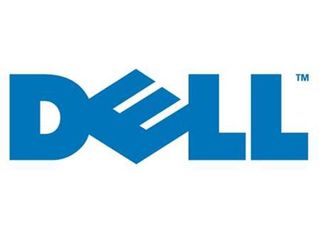
Despite concern coming from several major shareholders, Dell has stressed that its decision to go private is the best one it could have made for the firm.
In a Securities and Exchange Commission filing, Dell said it "considered an array of strategic alternatives," as well as hiring a "prominent management consultant to help it assess the Company's strategic position." Said alternatives and the consultant's assessment ultimately saw Dell choosing to go private in a $24.4 billion deal, which was spearheaded by co-founder Michael Dell (who has issued an open letter to consumers on the deal), Silver Lake and Microsoft.
"Based on that work, the Board concluded that the proposed all-cash transaction is in the best interests of stockholders," Dell's filing reads. "The transaction offers an attractive and immediate premium for stockholders and shifts the risks facing the business to the buyer group. In addition, and importantly, the go-shop process provides stockholders an opportunity to determine if there are alternatives that are superior to the present offer."
In a letter sent to the Dell board, Southeastern Asset Management, which owns 8.5 percent of Dell's shares and is consequently the firm's largest outside shareholder, stated that the deal "grossly undervalues the company." The former said it's willing to launch a proxy fight in order stop the deal.
Reuters' sources said that Harris Associates, Yacktman Asset Management and Pzena Investment Management, which cumulatively own 3.3 percent of Dell's shares, are also against the deal.
Contact Us for News Tips, Corrections and Feedback
Stay on the Cutting Edge
Join the experts who read Tom's Hardware for the inside track on enthusiast PC tech news — and have for over 25 years. We'll send breaking news and in-depth reviews of CPUs, GPUs, AI, maker hardware and more straight to your inbox.
-
milktea Southeastern might be able to counter offer for a bit more, like 1 or 2 dollars per share. But ultimately, they should just dump their stake. DELL's future as a public company is very gloomy. I just don't see how its share price could go back up above the $20s. If Southeasten tries to hold on, DELL might just sink to an all time low, in the near future.Reply
As a consumer, I already gave up on DELL a long time ago.
-
A Bad Day ReplyKey investors said to be dissatisfied with deal.
Maybe, if you put better board of directors and a better management into Dell, you would've never been booted out... -
meluvcookies not a Dell apologist by any means, but I really hope that this ends up being a good move for them. I've owned a couple of their laptops, and while bargains, they've held up admirably. My understanding is that their quality has dropped off in the past few years. Hopefully this move can help them correct that and start putting out better products.Reply -
downhill911 Key investors said to be worried that Dell will move on and do better without them.Reply -
CaedenV downhill911Key investors said to be worried that Dell will move on and do better without them.My thoughts exactly. The few who care probably just want in on the deal, but they are not being allowed in so they are making a stink about it.Reply -
virtualban As someone wisely said already here at Tom's comments, it is sad when companies enter a market because they feel they have to, because investor and shareholder pressure to enter the market that everybody is in. The brand loses value, the products is sub par, the effort to keep going is lacking, and when the next thing comes along, everything might start over again, abandoning markets and trying to enter new ones without the soul in it.Reply -
virtualban p.s. the opposite side is Kodak and their holding on too tight to their ways without taking a real good look at the world and the demands of customers. But Dell is not Kodak. Dell, IMO, is doing the right thing.Reply
Most Popular


